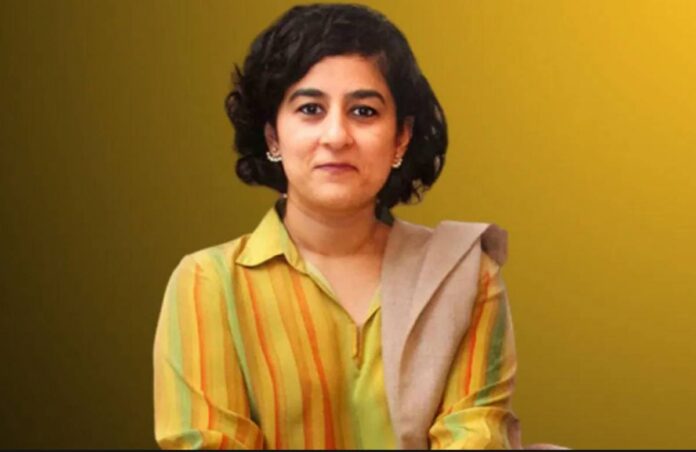On 13 January 2023, after a wait of nine months, the State Bank of Pakistan (SBP) finally unveiled the five successful applicants authorised to establish long-awaited digital banks. The list of applicants shortlisted for a digital banking licence included Easy Paisa DB, Hugo Bank, KT Bank, Mashreq Bank and Raqami.
However, something did not sound right. To many onlookers’ shock, the application of the most prominent venture capital-backed contender in the race Dbank’s name was nowhere to be found in the list. Former special assistant to the prime minister (SAPM) Tania Aidrus and her cofounder Khurram Jamali’s Dbank, backed by prominent Silicon Valley VC firms Kleiner Perkins and Sequoia, had seemingly been one of the top contenders for the licence. Why would the SBP reject them? Silence echoed at Dbank’s headquarters in Islamabad.
To understand how we got to this point, let us start from the beginning. Specifically, one woman’s beginning: Tania Aidrus.
Tania Aidrus’ vision
After working for 10 years at Google, first as the Country Manager for South Asia Emerging Markets and then as the Director of Product and Payments for Next Billion Users, Tania Aidrus returned to her home country in 2019 with a mission – to digitise Pakistan. She planned to achieve this goal through a collaboration with the government, so she joined as an SAPM in the then prime minister Imran Khan’s office, under the PM’s Digital Pakistan Initiative in February 2020. In her efforts to digitise Pakistan, she popularised the infamous slogan ‘Roti, Kapra, Makan aur Internet’.
Unfortunately, Aidrus’s plans to digitise Pakistan did not pan out as she expected. Problems had started soon after Jehangir Tareen, who arranged the first meeting between Aidrus and Khan, was ousted from Khan’s political party Pakistan Tehreek-e-Insaf (PTI) due to the sugar crisis probe. In July 2020, Aidrus gave up her position as the SAPM. The reason cited for the resignation, according to Aidrus, was criticism regarding her dual nationality, explaining that it was overshadowing the goals of Digital Pakistan.
So, Aidrus gave up on roti, kapra and makan, zeroing her focus on just the internet. In December 2020, she co-founded a technology advisory and investment company called the Rayn Group. The content in this publication is expensive to produce. But unlike other journalistic outfits, business publications have to cover the very organizations that directly give them advertisements. Hence, this large source of revenue, which is the lifeblood of other media houses, is severely compromised on account of Profit’s no-compromise policy when it comes to our reporting. No wonder, Profit has lost multiple ad deals, worth tens of millions of rupees, due to stories that held big businesses to account. Hence, for our work to continue unfettered, it must be supported by discerning readers who know the value of quality business journalism, not just for the economy but for the society as a whole.To read the full article, subscribe and support independent business journalism in Pakistan

























